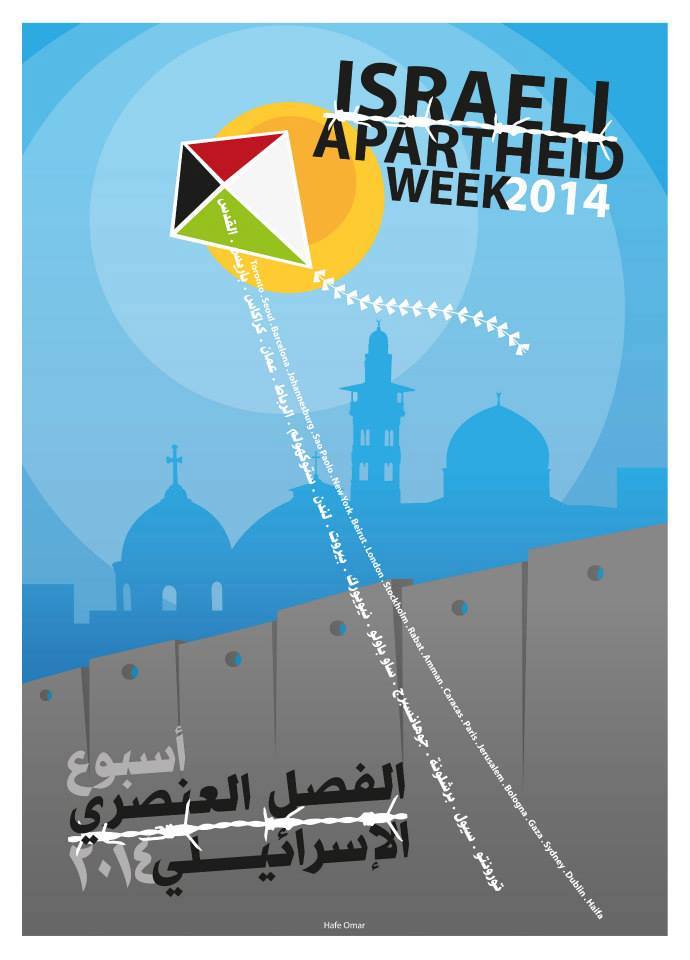Tag: BDS
-
A specter is hunting Israel: the specter of the BDS movement
6th March 2014 | International Solidarity Movement, Marco Varasio | Gaza, Occupied Palestine While Israeli ministers are discussing the usage of lawyers and the Mossad to fight boycott, divestment and sanctions (BDS), in the besieged Gaza Strip, like in 250 other cities around the world, activists, students and representatives of organizations are preparing for the tenth annual Israeli…
-
Bahaa runs for Palestine
4th March 2014 | International Solidarity Movement, Rosa Schiano | Gaza, Occupied Palestine In the shadow of the bleachers of Yarmouk stadium in Gaza City, still damaged by Israeli bombing, 400-meter Olympic runner Bahaa Al Farra trains. Bahaa took part in the London Olympics, along with three other Palestinian athletes, in 2012. “I started racing at the age…
-
Video from Gaza: Israeli Apartheid Week – 2014
22nd February 2014 | Israeli Apartheid Week – Gaza Strip | Gaza, Occupied Palestine



